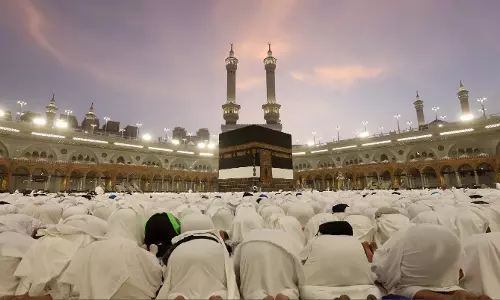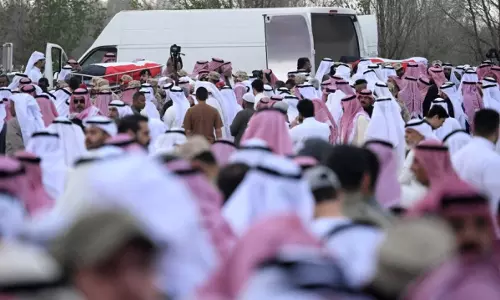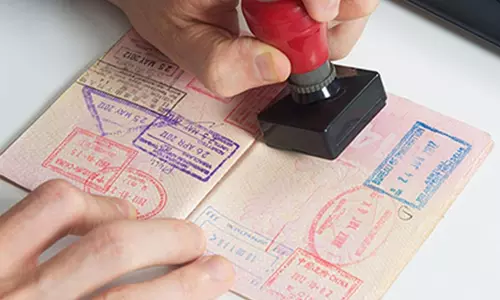
Muzaffarnagar Riots- Five years after
text_fieldsSeptember 2018 marked five years of the Muzaffarnagar riots that shook western UP in 2013. Thousands of Muslim families were displaced in what can easily be termed as one of the worst communal clashes in recent years. Despite the displacement, the violence and the sexual assault, rapes and gang rapes on the Muslim community, justice seems a far cry.
I remember attending an event post the riots, in the BJP headquarters in Delhi in 2013, where the late BJP minister Hukum Singh, to an audience of over 400 proclaimed that the video, which was one of the factors that fuelled the riots, was true. This despite the fact that it had been proven that it was a video from 2010, of two boys being brutally beaten in another South Asian country. It still gives me jitters to remember how the crowd broke out in loud cheers of anti- Muslim slogans as Hukum Singh gave the details of how the video showed two Hindu boys in Muzaffarnagar being brutally murdered by ‘people from another community’, their eyes being gauged out and their hearts being carved out , among other gory details.
Though there were media reports of hundreds of women being raped during the riots, seven of them could fight the circumstances and filed FIRs. Despite being displaced and living in camps and then resettlement colonies, these women bravely fought their cases initially with the help of Human Rights Lawyers and activists. However, when I met some of them once again, late August this year, they seemed to have lost all hope. With not even one conviction in any of the cases and the perpetrators, almost all of them belonging to the dominant Jat community, out in the open, with threats and intimidation looming large at them and poverty, lack of any support whatsoever and disillusionment with justice staring at their faces, they seemed to have given up. Of the seven survivors who had filed FIRs of the gang rapes, one had died during child birth in 2016.
A visit to the resettlement colonies where those displaced finally moved into, is an extremely disturbing site and is a reminder of how the community is ghettoised forcefully because of no fault of its own. These colonies in and around Muzaffarnagar and Shamli districts have poor infrastructure, inadequate sanitation and lack basic necessities such as clean drinking water. I visited the Falah-e-Aam colony and Idrees Beg Bihar resettlement colony for the third time and saw no difference from what I had witnessed a year ago. These families continue to live in squalor and poor living conditions. Akram Akhtar Chowdhury, who heads Afkar India foundation in Kandhla told me how he is fighting to get compensation for the nearly 191 families who despite having their papers etc in place have been denied any. One of the petitioners, Yamin Ahmed, for instance, he shared, was denied compensation by the Uttar Pradesh government stating that his father had been given the same. What is astonishing is that Yamin’s father had died over 40 years ago! This being one of the many examples of cases of compensation being denied to those displaced by the riots.
What worried me most was how these riots further marginalised the women of these communities. One of the rape survivors had told me last year, how in her village, Fugana, before the riots, she would work in the fields and was free to move around, but here in the colony, she hardly left home, her mobility restricted. When communal violence occurs, women’s bodies are targeted and rape and violence used against them. Women are considered to bear the community’s ‘honour’ and therefore specially targeted, with those targeting them using violence and especially sexual violence against them to ‘dishonour’ the entire community. In the Muzaffarnagar riots also, all the accused belonged to the dominant Jat community and all the women who came out and reported these rapes, were Muslim women. Most of them in their FIRs stating that they knew their rapists.
Rehana Adeeb, an activist who has been working in Muzaffarnagar tells me how she has seen these women lose all hope over the years. ‘They are scared. The lack of continued support from all quarters has led them to believe that nothing will ever change. We have to understand that as poor women, who are survivors of sexual violence, their lives have not been easy post the riots. The fact that there has not been even one conviction in their cases and all those named in their FIRs roam free has only worsened their fears’.
Today there are rumours and media reports of compromises being made and money allegedly having changed hands. Even if these were believed to be true, none of us, have any right whatsoever to question the decisions made by these families who have waited for justice in extremely challenging and threatening conditions for over five years now. The continuing injustice faced by the survivors of Muzaffarnagar riots is our collective failure.
(Mariya Salim is a researcher and Women's Rights Activist.)






















